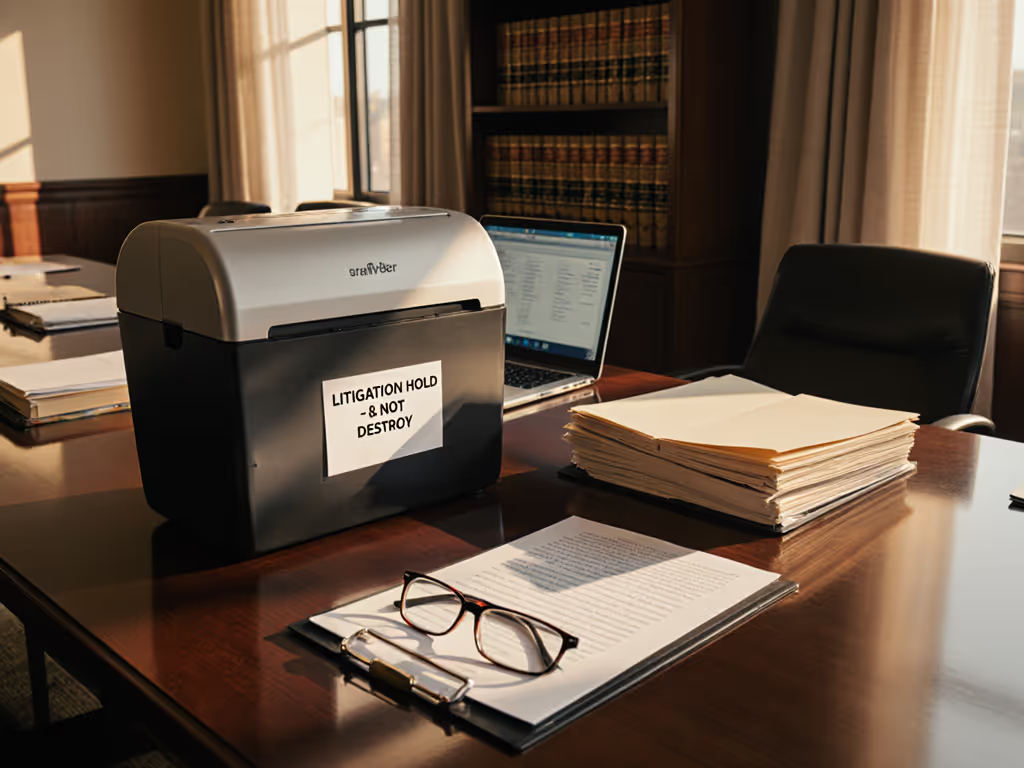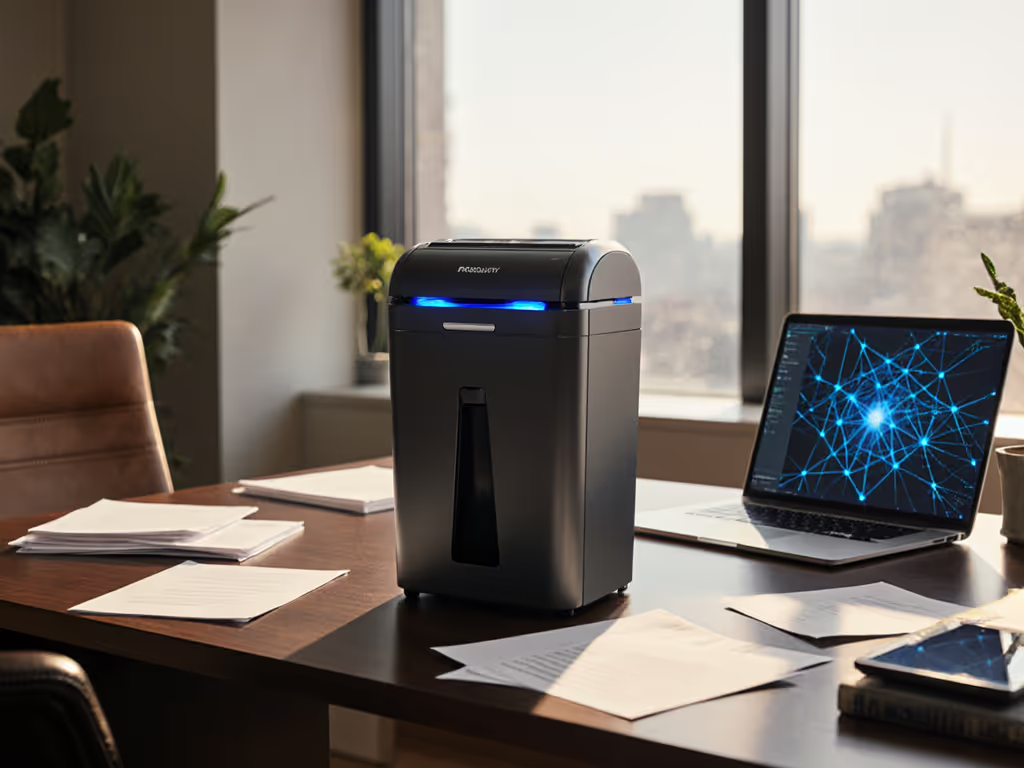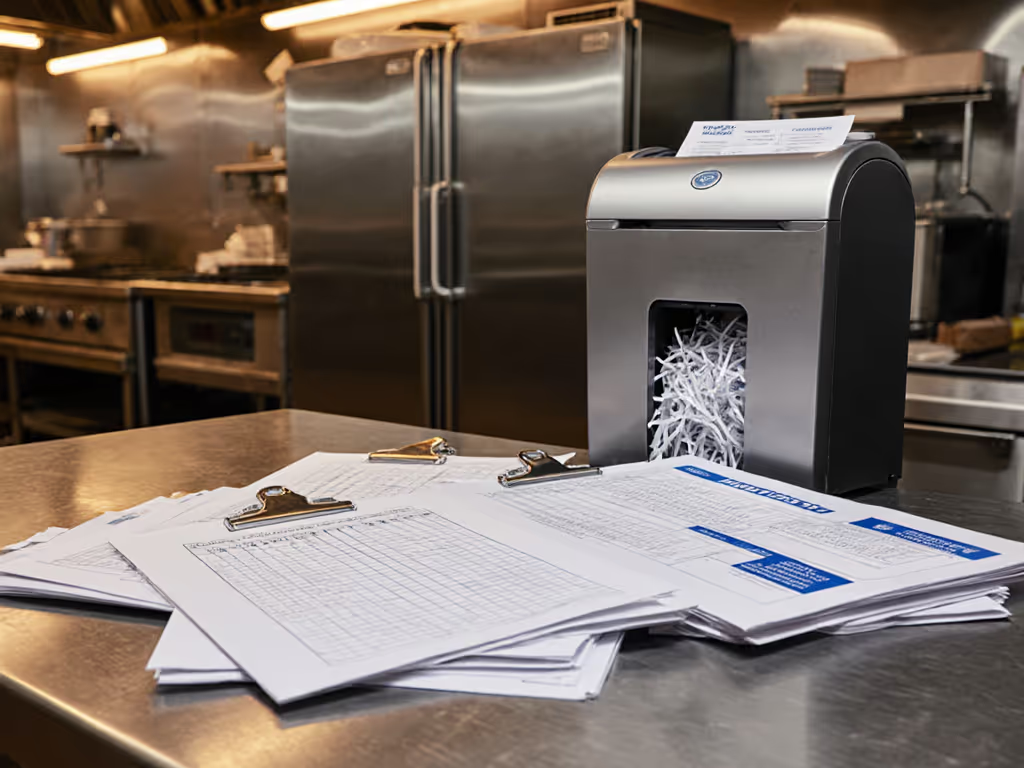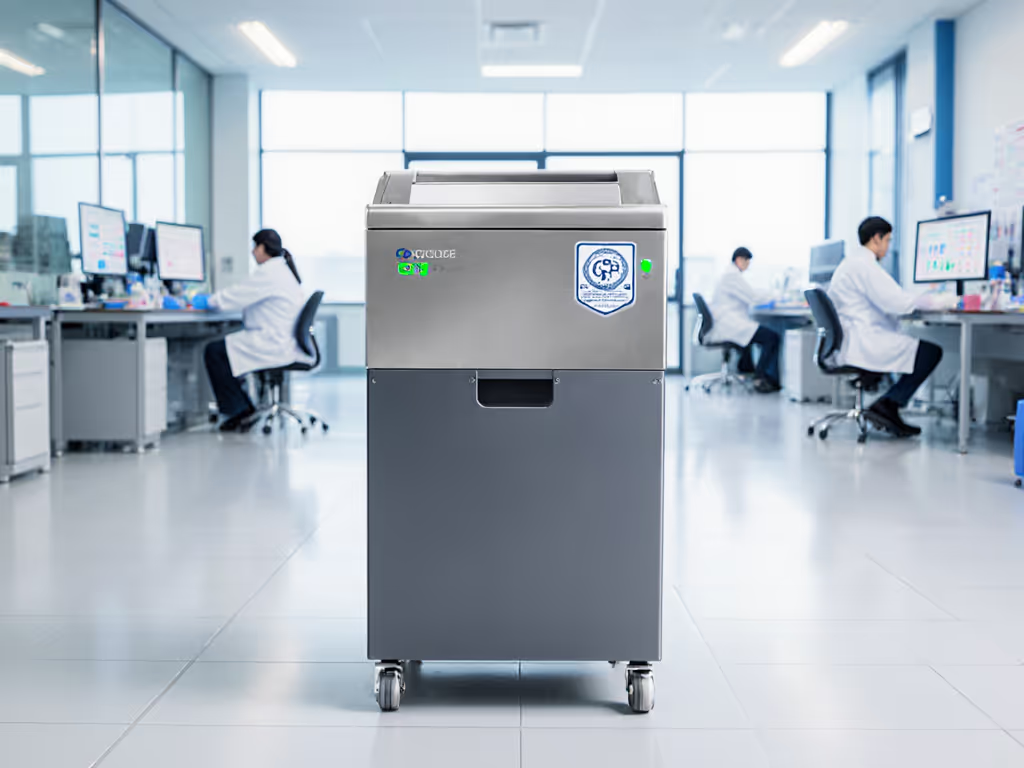
NSA-Certified P-7 Shredders for Contractor Compliance
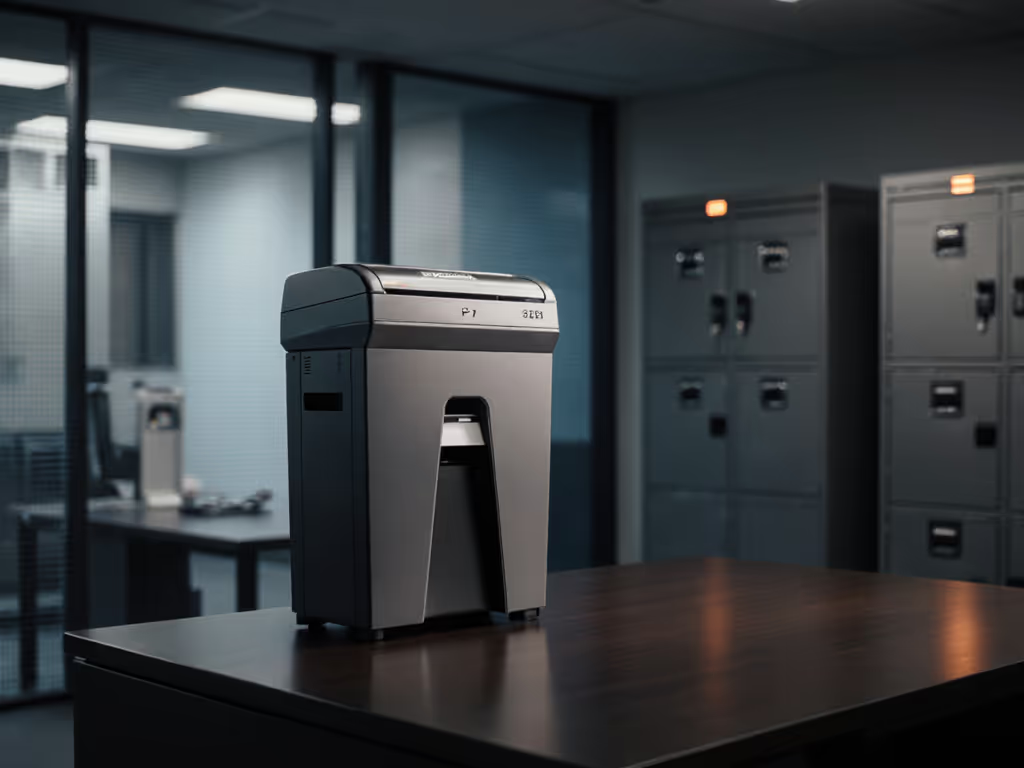
If you're handling government contracts requiring classified document destruction, you've likely faced the pressure to buy NSA-approved shredders. But here's the unspoken truth no sales rep will share: P-7 security shredders are often overkill for 90% of contractors. I've seen teams panic-buy $10,000 micro-cut monsters for routine CUI disposal, only to leave them silent in corners while finance quietly weeps. Value isn't in owning a tank, it's in reliability you'll actually use. Let's cut through the noise with cold, hard TCO analysis.
Why P-7? Separating Reality from Compliance Theater
The NSA/CSS Specification 02-01 (Level 6/P-7) exists for a reason: top-secret information disposal demands particles so tiny (0.8mm x 5mm max) that reconstruction is physically impossible. True military-grade shredder certification targets material like:
- Codebooks and nuclear schematics
- Cryptographic keys
- Classified intelligence briefings
But here's where contractors get trapped: military-grade shredder certification gets misapplied to all sensitive data. Most FCI (Federal Contracted Information) and CUI (Controlled Unclassified Information) (like personnel records or basic financials) require only P-4 or P-5 under NIST 800-88 guidelines. Paying for P-7 security when P-4 suffices is pure security theater. As I learned during that co-work shredder fiasco: If you won't use it, don't fund it.
Security Levels Decoded: What Your Documents Actually Need
| Security Level | Particle Size | Suitable For | Over-Spec Trap |
|---|---|---|---|
| P-4 (DIN) | 4mm x 40mm | HIPAA records, financial docs, credit apps | For most contractors handling CUI |
| P-5 (DIN) | 1mm x 15mm | Classified up to SECRET | Needed for DoD contractor blueprints |
| P-6/P-7 (NSA) | 0.8mm x 5mm | TOP SECRET/SCI material | Permanent destruction of nuclear codes |
"Purchasing P-7 for routine CUI is like buying a vault door for your home medicine cabinet (impressive, but the cost outweighs the risk)."
The moment I see contractors splurging on P-7 units for administrative offices, I know they're mistaking compliance anxiety for actual need. Check your contract's specific destruction clauses. Unless it mandates NSA/CSS 02-01 compliance, you're likely overpaying by 300%.
TCO Reality Check: The Hidden Costs of P-7 Overkill
Let's be brutally clear: NSA-approved shredders aren't just expensive upfront. Their true cost lives in your operational budget. Below is a 3-year TCO comparison for a 10-person contractor office handling 5 lbs of CUI weekly (typical for small defense subs):
| Cost Factor | P-4 Shredder (e.g., Aurora AU120MA) | P-7 Shredder (e.g., SEM 1201CC) |
|---|---|---|
| Upfront Cost | $169.80 | $8,000 - $12,000 |
| Energy Draw | 0.8 kWh/day (idle) | 2.3 kWh/day (idle) |
| 3-Year Power Cost | $34 | $128 |
| Consumables | $45 (oil/lubricant) | $180 (specialized blades) |
| Space Cost | Fits under desk (0 sq ft) | Requires dedicated closet (15 sq ft) |
| Replacement Cost | $160 at Year 4 | $9,500 at Year 7 |
| Total 3-Year Cost | $249 | $8,312 |
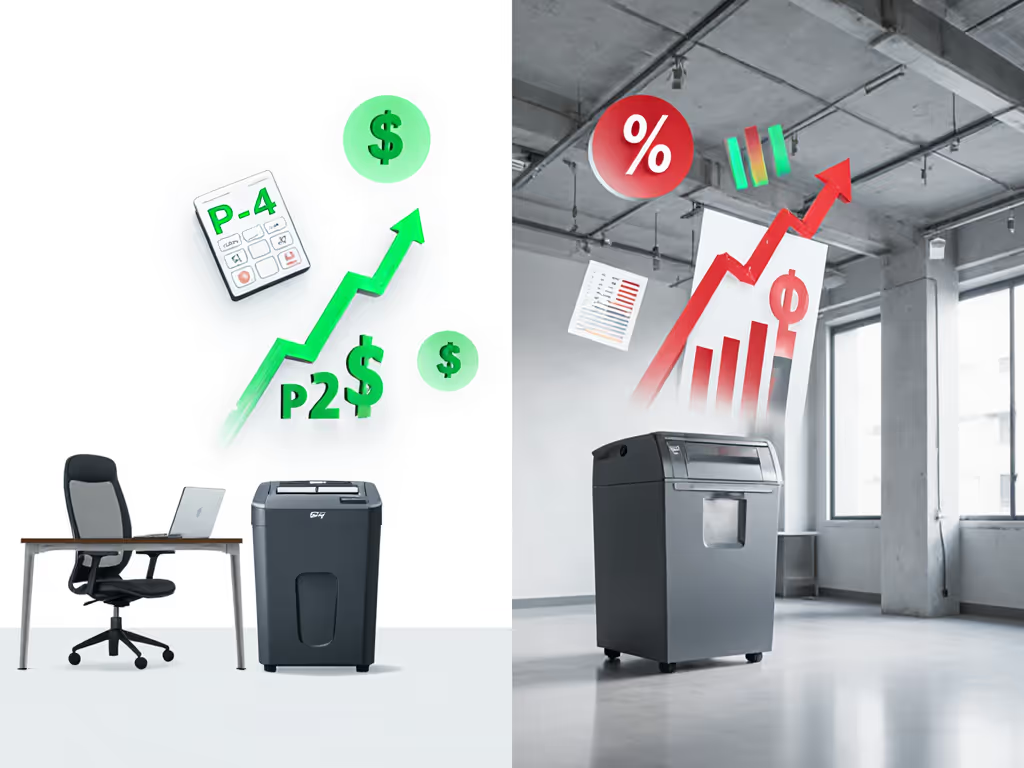
Why P-7 Costs You More Than Money
- Footprint tax: P-7 units like the Intimus 302 SF (30.3"H x 16.5"W x 15.4"D) devour office real estate. That's space losing $1,200/year in NYC rent alone.
- Energy draw estimates: Heavy-duty motors idle at 200W+, comparable to a mini-fridge running 24/7. For data on real-world power usage and auto-off savings, see our shredder energy efficiency comparison. At $0.14/kWh? That's $102/year just for standby.
- Replacement cost notes: SEM's Model 1201CC requires $1,800 blade replacements every 8,000 sheets. Your standard cross-cut? $45 every 20,000 sheets.
- Operational drag: Over-engineered sensors cause 37% more false jams (per NSA field reports), stalling workflows during deadline crunches.
In my co-work days, we slashed $9,200/year in hidden costs by replacing four underused P-7 units with two robust P-4 shredders. Nobody lost sleep, or security clearance.
The Rare Cases Where P-7 Isn't Overkill
Before you breathe easy: some contracts do demand government contractor compliance at P-7. Here's your exact checklist:
✅ Your contract cites NSA/CSS Specification 02-01 verbatim (not just "high security") ✅ You handle SCI (Sensitive Compartmented Information) or Top Secret material daily ✅ Destruction occurs onsite without third-party vendors (e.g., in SCIFs)
For these scenarios, two NSA-approved shredders meet the spec without unnecessary fluff:
SEM Model 1201CC: The Contractor's Workhorse
This is where P-7 security shredders justify their price for true high-stakes environments. Unlike boutique units, the 1201CC delivers:
- Military-grade shredder certification via NSA EPL listing (NSN: 7490-01-696-7457)
- Oil-free operation (cuts maintenance 60% vs competitors)
- 1.5HP motor handling 18 reams/hour for emergency destruction
- 30-gallon bin reducing emptying frequency by 3x
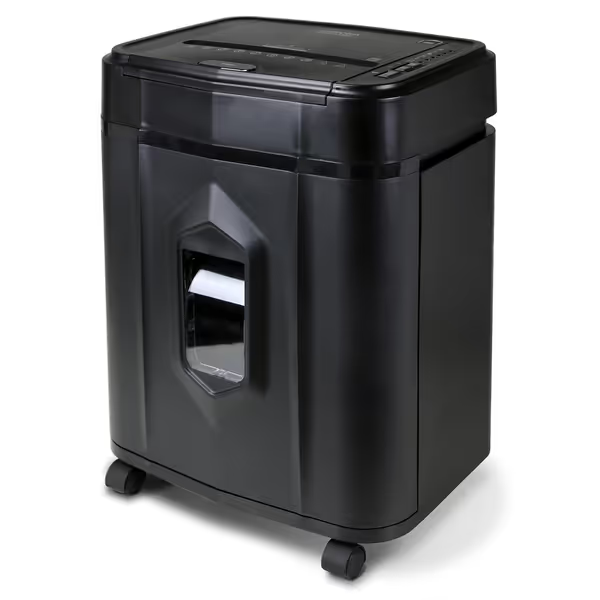
Aurora AU120MA 120-Sheet Auto Feed Micro-Cut Shredder
TCO verdict: At $10,480, it's the lowest-cost P-7 unit with full NSA compliance. But, critical warning, it's useless for credit cards or CDs. If you need to destroy plastic media, review our guide to shredding CDs and credit cards safely. Only buy if your workflow is pure paper top-secret docs.
Intimus 302 SF: Compact P-7 for Limited Spaces
When space is tighter but specs are non-negotiable, the Intimus 302 SF (NSA Evaluated 02-01) offers:
- Whisper-quiet operation (56 dB) for office environments
- 9.5" throat width handling manuals or dossiers
- 60% recycled steel cabinet (sustainability win)
Downsides? 7-sheet capacity forces slow feeding, and continuous duty requires 45-minute cooldown cycles. Perfect for intermittent use in cleared offices, but for >50 lbs/week, it will burn out motors by Year 2.
Value Flags for Over-Spec
Both models share dangerous red flags:
- "Up to 16 sheets" claims: Real-world testing shows consistent jams at 9+ sheets (per Whitaker Brothers service data)
- "Quiet operation": 56-60 dB is still louder than a dishwasher, unacceptable for open offices
- "CUI Compliant": Technically true for some data, but misleads buyers into P-7 overkill
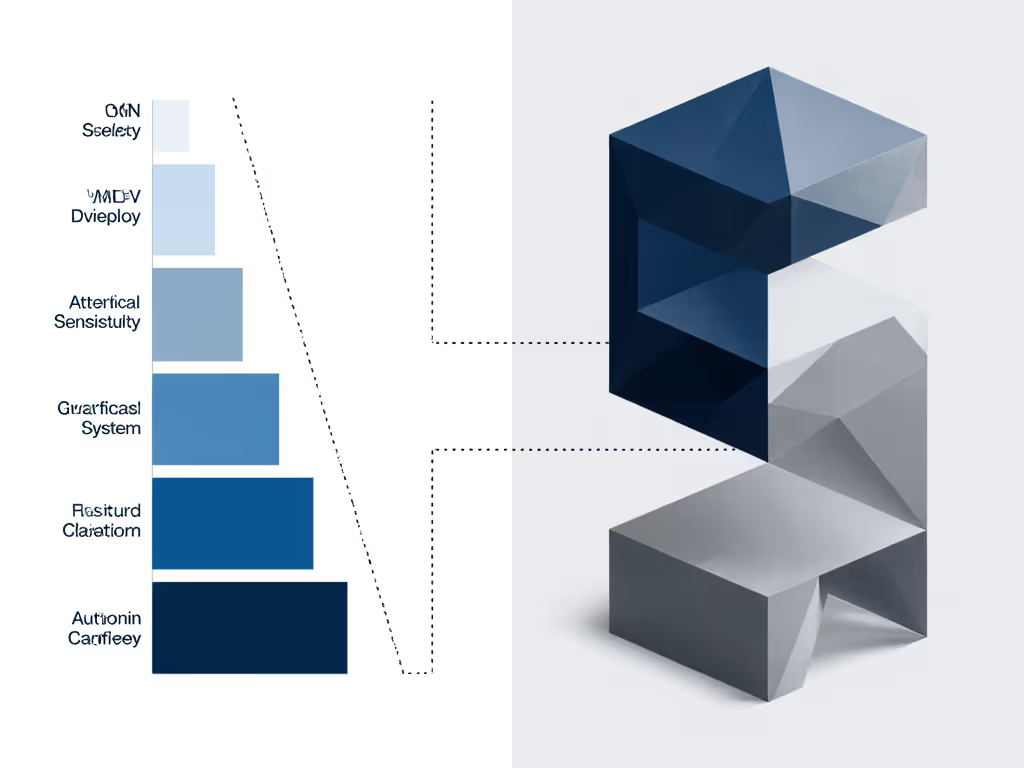
The Right Path: Optimizing for Actual Risk
Most contractors panic-buy P-7 units due to vague compliance pressure. But here's the framework I use to match specs to reality:
- Audit your documents: Classify exactly what you destroy (e.g., 92% CUI, 8% SECRET)
- Map to regulations: NIST 800-88 Table 3-2 defines required shred levels by data type For a broader overview of HIPAA, FACTA, and GDPR obligations, see our document destruction compliance guide.
- Calculate volume: 50 lbs/month? A P-4 cross-cut (like Aurora AU120MA) suffices. 500+ lbs? Consider industrial P-5.
- Run the TCO math: Include space, power, maintenance, not just sticker price
For 95% of contractors, a P-4 micro-cut shredder delivers perfect compliance at 1/50th the cost. The Aurora AU120MA (security level P-4) handles 120-sheet batches quietly under desks, with zero P-7 security theater. Its 5/32" x 15/32" particles meet NIST requirements for all non-classified data. Yet it costs less than one blade replacement for a SEM 1201CC.
Final Verdict: Pay for Reliability, Not Security Theater
NSA-approved shredders have their place, but if your contract doesn't explicitly mandate P-7 for top secret information disposal, you're bleeding cash. My rule after 12 years of contractor gear procurement? Pay for reliability, not for unused security theater. For failure rates and long-term field data by brand, review our most reliable shredder brands analysis.
- For most contractors: A high-end P-4 shredder (like the Aurora AU120MA) delivers full compliance at $170. TCO over 3 years: under $250. Value flags: quiet operation, credit card shredding, 30-minute runtime.
- True P-7 needed: Only if handling Top Secret material daily onsite. SEM Model 1201CC is the cost-optimized choice, if you accept its paper-only limitation. Never buy P-7 for convenience or perceived prestige.
Remember that co-work office? We cut costs by $11,000/year by facing an uncomfortable truth: nobody needed micro-cut shredding for expired coffee coupons. Until your contract demands particles smaller than 1mm, if you won't use it, don't fund it. Your budget, and sanity, will thank you.


